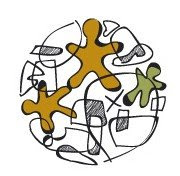GREEK COUNCIL FOR REFUGEES
HELLENIC LEAGUE OF HUMAN RIGHTS
NETWORK OF SOCIAL SUPPORT TO REFUGEES AND MIGRANTS
GROUP OF LAWYERS FOR THE RIGHTS OF MIGRANTS AND REFUGEES
BACKGROUND BRIEFING ON THE INVESTIGATION INTO THE FARMAKONISI BOAT WRECK OF 20.1.2014
Athens, 31 July 2014
Background
During the early hours of 20.1.2014, off the coast of Farmakonisi island, within Greek waters and close to the border line, a small boat capsized, which carried 27 refugees from Afghanistan and Syria, including 4 women and 9 children. The boat capsized and sank, while it was towed by a vessel of the Greek Coast Guard. The sinking resulted in the death of 11 persons (3 women and 8 children). The corpses of one woman and two children were found at sea and the rest of them in the cabin of the vessel, when it was lifted one month after its sinking.
During their immediate contact with the representatives of the UNHCR, which took place the following day on the island of Leros, the 16 refugees who survived reported that their boat had approached the Greek coastline when it came across the Coast Guard and that the towing of the boat by the coast guard was conducted towards Turkey, in two stages at high speeds and resulting in water entering the boat. They also reported that the rope which kept the boat connected with the Coast Guard vessel was cut by the Coast Guard officers, which resulted in the boat being capsized and in the death of 11 women and children and that the necessary rescue actions were not taken. They also complained about further acts of mistreatment against them after they reached the island of Farmakonisi.
The Coast Guard officers, on the contrary, have denied the complaints.
The Prosecutor of the Marine Court has ordered a preliminary investigation on this case, which has been extensively covered by the Press attracting international interest and has been dealt with by the Greek and the European Parliament. Our organisations have closely followed the case, supporting the victims in exercizing their rights.
Archiving of the penal file
After a preliminary investigation led by the Prosecutor of Piraeus' Marine Court, the case was considered to be “manifestly ill-founded in substance” with regard to Articles 306 (exposure to risk), Article 277 (causing a shipwreck), Article 278 (causing a shipwreck by negligence) and Article 308 (bodily harm) of the Penal Code and the file was archived.
This meant that the investigation into the responsibility of the Greek coast guard for causing the boat to sink as well as for inflicting ill-treatment against the victims - as they had been accused of by the survivors - was stopped.
The decision to end the investigation was approved by the Prosecutor of the Military Court of Review, who has under the law the power to order a criminal prosecution.
The decision of Piraeus' Marine Court to close and archive the case and turn a blind eye to the accusations raised by the victims as well as their detailed testimonies concerning the facts of the case, undermines the right to judicial protection and overrides fundamental rights and guarantees that aim at protecting the victim in penal procedures.

